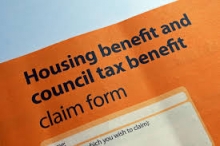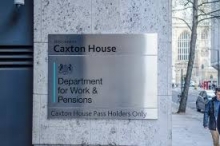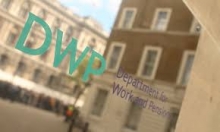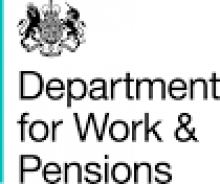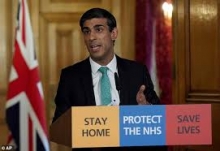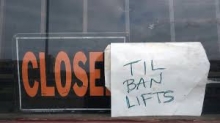Work TV
Watch our TV Channel dedicated to the ‘World of Work’. Explore our video library for informative videos featuring career opportunities at leading companies, franchising opportunities, further education and recruitment professions and their services.
Simon Collyer
Getting Married Is in Decline in the UK Shows The Latest Statistics
MARRIAGE - According to figures published by the ONS, getting married is in decline. With the average wedding costing 35K you can understand it. Marriage was generally something for high-status males in the past and of course the security of being married protected women from other male advances.
There were 242,842 marriages in England and Wales in 2017, a decrease of 2.8% from 2016.
Marriage rates for opposite-sex couples in 2017 were the lowest on record, with 21.2 marriages per 1,000 unmarried men and 19.5 marriages per 1,000 unmarried women.
'Partner' is, of course, the modern term. Marriage has always had a lot to do with property rights. Alas, with the shrinking middle classes, 'property' is not something that so many people own these days. The wearing of rings is to do with the Planet Saturn. Astro Theology and Maritime Admiralty law are rather outside our scope. However, the wearing of black gowns by the legal profession and by graduating students is also associated with the Black Planet. If you are bored, we suggest you look into it in more detail. We are sure you will find it a fascinating topic.
ABC Comments, have your say below:

Another Large Jump in Universal Credit Claims
UNIVERSAL CREDIT -The number of people claiming Universal Credit as a result of the coronavirus crisis has hit 1.4 million,
Work and Pensions Secretary Therese Coffey said.The figure is an increase of 200,000 on the total Ms Coffey gave last week.
She said the welfare system was “capable of processing and managing those claims” amid concerns of financial hardship for people who are unable to access any of the coronavirus bailout measures.
ABC Comment, have your say below:

Housing Benefit Increases This Month
HOUSING BENEFIT - Tenants in the UK will receive an increase in Housing Benefit payments from April 1st.
The maximum amount of Housing Benefit payable is: 100% of your eligible rent (after any ineligible service charges) If you are not working, your maximum housing benefit will be restricted so that the most you can receive in all benefits paid will be £500 per week for a couple or family or £350 for a single person.
The freeze on Local Housing Allowance rates that has been in place since 2016 was lifted by the Minister for Welfare Delivery Will Quince MP on January 13, 2020.
And that means these rates will rise by 1.7 per cent in line with inflation, from April.
Local Housing Allowance rates are calculated from the average rents in any given area and are used to determine the level of Housing Benefit awarded to those renting from private landlords.
In addition, Local Housing Allowance rates will be increased to the 30th percentile of market rents as part of measures to help claimants during the coronavirus pandemic.
This will apply to all private renters who are new or existing Universal Credit housing element claimants, and to existing Housing Benefit claimants.
How much is the increase?
There are around 1.4 million people in the private rental sector receiving Local Housing Allowance, and this change will provide an average of around £10 extra a month to affected households in the private rented sector.
We have included the rate as it was since April 2019 and then the rate as it will be from April 2020, with weekly and monthly equivalents:
Cat A
A dwelling where the tenant has exclusive use of only one bedroom with shared use of other facilities.
April 2019 rate = £57.34 a week; calendar monthly equivalent £249.16
April 2020 rate = £67 a week; calendar monthly equivalent £291.13
Cat B
A dwelling where the tenant has exclusive use of only one bedroom with exclusive use of other facilities.
April 2019 rate = £101.84 a week; calendar monthly equivalent £442.52
April 2020 rate = £120.82 a week; calendar monthly equivalent £524.99
Cat C
A dwelling where the tenant has the use of two bedrooms.
April 2019 rate = £127.62 a week; calendar monthly equivalent £554.54
April 2020 rate = £143.84 a week; calendar monthly equivalent £625.02
Cat D
A dwelling where the tenant has the use of three bedrooms.
April 2019 rate = £135.96 a week; calendar monthly equivalent £590.78
April 2020 rate = £155.34 a week; calendar monthly equivalent £674.99
Cat E
A dwelling where the tenant has the use of four bedrooms.
April 2019 rate = £173.41 a week; calendar monthly equivalent £753.51
April 2020 rate = £195.62 a week; calendar monthly equivalent £850.02

Image: Will Quince MP.
The Minister for Welfare Delivery, Will Quince, said: "This Government is levelling up opportunity across the UK, and this will be a welcome increase for around 900,000 people as we provide more money to help pay for housing.
"We are committed to tackling all forms of homelessness - ending the freeze on housing benefits is just one part of achieving this.
"We have announced an additional £263 million to help councils provide better support to homeless people, and importantly, prevent people from becoming homeless in the first place.
"We will continue to work with the Ministry for Housing, Communities and Local Government, and others across government, to find ways to support the cost of living in the rented sector."
What do people need to do to receive the increase?
Payments will increase automatically – they do not have to apply to receive the extra cash and should see a change in their housing payments after April 1.
ABC Comment, have your say below:

DWP Are to Telephone the Public Claiming Benefits If Extra Information Is Required
DWP - The Department for Work and Pensions (DWP) says that a bigger team will instead ring claimants themselves if they need to check any of the information provided. Claiments have spent days and hours trying to get through on the the telephone. 1.2 million extra claims have been recorded.
Details will also be confirmed through messages sent on claimants' online journals.
The DWP hopes to take some of the worry and frustration out of submitting a claim, while speeding it up by putting an end to long call wait times.
Demand for Universal Credit has rocketed during the coronavirus outbreak, with some people trying to get through to the DWP receive engaged tones or having to wait for several hours due to the enormous volume of calls.
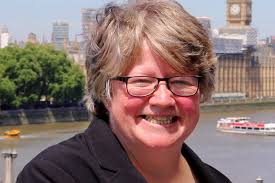
Image: Therese Coffey DWP minister.
Secretary of State for Work and Pensions Therese Coffey said:
We are doing whatever it takes to make claiming benefits as straightforward as possible during a time when we are receiving an unprecedented number of claims.
That’s why no one making a new claim to Universal Credit needs to call us.
Once you’ve completed your online application, you can rest assured we have received your claim and we will call you if we need to check any of the information you’ve given us.
Since 16 March 2020, more than a million new claims for Universal Credit have been processed, and 10,000 staff are being redeployed to help on the frontline. A rapid recruitment drive has been launched for an additional 5,000 to aid the effort.
Already, DWP staff have been making proactive calls where they can see people haven’t been able to get through.
Already working through weekends, the DWP team will continue to make calls over the Easter bank holiday weekend, helping people complete their online claims and making sure the safety net catches those who need help.
This change goes further, putting the emphasis on the department to follow up with claimants if more information is needed – although anyone who is unable to get online can still call the department as normal.
Appropriate measures to protect people from fraud have been put in place to safeguard the new process. DWP will never ask you for your bank details over the phone and people should never give out personal information unless they are sure it is DWP calling.
ABC Comment - have your say below:

US Unemployment Surges
UNEMPLOYMENT – has increased in the US.
Americans seeking unemployment benefits has surged for a third week as the coronavirus pandemic intensifies.
More than 6.6 million people filed jobless claims in the week ending 4 April, the Department of Labor said.
The deepening economic crisis comes as the number of virus cases in the US soars to more than 430,000.
ABC Comment, have your say below:

Social Security Changes 2020 - 2021
BENEFITS CHANGES - Please note these changes to social security benefits.
Working Tax Credit rates
The maximum annual Working Tax Credit rates are shown below.
Use the tax credits calculator to work out how much you could get.
|
Rates (£ per week) |
2020 to 2021 |
2019 to 2020 |
2018 to 2019 |
|
Basic element |
£3,040 |
£1,960 |
£1,960 |
|
Couple and lone parent element |
£2,045 |
£2,010 |
£2,010 |
|
30 hour element |
£825 |
£810 |
£810 |
|
Disabled worker element |
£3,220 |
£3,165 |
£3,090 |
|
Severe disability element |
£1,390 |
£1,365 |
£1,330 |
Childcare element of Working Tax Credit
The maximum weekly childcare costs you can claim for and percentage of costs covered are shown below.
|
Rates (£ per week) |
2020 to 2021 |
2019 to 2020 |
2018 to 2019 |
|
Maximum eligible cost for 1 child |
£175 |
£175 |
£175 |
|
Maximum eligible cost for 2 or more children |
£300 |
£300 |
£300 |
|
Percentage of eligible costs covered |
70% |
70% |
70% |
Child Tax Credit rates
The maximum annual Child Tax Credit rates are shown below.
|
Rates (£ per week) |
2020 to 2021 |
2019 to 2020 |
2018 to 2019 |
|
Child Tax Credit family element |
£545 |
£545 |
£545 |
|
Child element |
£2,830 |
£2,780 |
£2,780 |
|
Disabled child element |
£3,415 |
£3,355 |
£3,275 |
|
Severely disabled child element |
£1,385 |
£1,360 |
£1,325 |
Tax credits income thresholds and withdrawal rates
The annual tax credits income thresholds and withdrawal rates are shown below.
|
Rates (£ per week) |
2020 to 2021 |
2019 to 2020 |
2018 to 2019 |
|
Income threshold |
£6,530 |
£6,420 |
£6,420 |
|
Withdrawal threshold rate (%) |
41% |
41% |
41% |
|
Threshold for those entitled to Child Tax Credit only |
£16,385 |
£16,105 |
£16,105 |
|
Income rise disregard |
£2,500 |
£2,500 |
£2,500 |
|
Income fall disregard |
£2,500 |
£2,500 |
£2,500 |
Get help working out your income.
Child Benefit rates
The weekly Child Benefit rates are shown below.
|
Rates (£ per week) |
2020 to 2021 |
2019 to 2020 |
2018 to 2019 |
|
Eldest/only child |
£21.05 |
£20.70 |
£20.70 |
|
Other children |
£13.95 |
£13.70 |
£13.70 |
Guardian’s Allowance rates
The weekly Guardian’s Allowance rates are shown below.
|
Rates (£ per week) |
2020 to 2021 |
2019 to 2020 |
2018 to 2019 |
|
Guardian’s Allowance |
£17.90 |
£17.20 |
£16.70 |
ABC Comment, have your say below:

DWP Select Committee Seeks Information About Claiming Universal Credit
DWP SELECT COMMITTEE - The Work and Pensions Committee wants to hear about how coronavirus is affecting people who rely on the benefits system as part of its new inquiry into the DWP’s response to the virus outbreak.
Letter from Permanent Secretary to Chair
The Committee is interested in finding out about the experiences of people who are having to claim benefits for the first time, the experiences of people who were already claiming benefits, and the experiences of people who need support but find they can’t claim any benefits.
The Committee has today also published a letter from the Permanent Secretary at the DWP responding to several questions about the Universal Credit application process and how the Department is dealing with the unprecedented increase in applications. The letter reveals that nearly a million new claims were made between 16 March and 3 April this year.
The Chair wrote to the Permanent Secretary following the evidence session on March 25.
Chair's comments

Image: Rt Hon Stephen Timms MP.
Rt Hon Stephen Timms MP, Chair of the Work and Pensions Committee, said:
“The DWP’s front line staff are making a herculean effort to deal with the unprecedented numbers of new claims for Universal Credit, and we thank them for everything they’re doing at such a difficult time. I know they will be focused on making sure that people who need money urgently get their payments as quickly as possible. But it is disappointing that the Permanent Secretary can’t tell us what proportion of people who’ve asked for an Advance payment have had one, or tell us anything about the delays that people are facing on DWP’s phonelines.
So we can better understand the issues faced by people who rely on the benefits system, we’d like to hear from people about their experiences getting the support they need. We are keen to hear about any specific problems claiming benefits and also more generally about whether people are getting enough money to support themselves and their families during these immensely difficult days.”
Some of the questions the Committee is interested in are:
How well is the Universal Credit system working for the unprecedented numbers of new claimants?
Has there been any improvement in the significant delays that new UC claimants were experiencing in the second half of March?
How quickly are people who ask for Advance payments of Universal Credit receiving their payments?
What lessons can be learned from the changes that have been made to the processes for verifying the identity of UC claimants? Are there any particular changes that should stay in place after the outbreak ends?
How effective have DWP’s communications with the public been during this period?
How do the needs of people claiming UC for the first time now differ from the needs of groups who’ve claimed UC in the past? How well is Universal Credit working for these new groups of people?
Are there any indications of how well the UC system will work for these claimants as they move into work in the short- to medium-term?
How well is the benefits system working for self-employed people who aren’t able to access the Government’s Self-employment Income Support Scheme? Is there a case for temporarily suspending the capital limits in UC during this period?
How easy is it for people to understand what they’re entitled to claim? For example:
Is it clear enough how the benefits system interacts with other forms of Government support during this period, such as the Coronavirus Job Retention Scheme?
Is it clear enough how public health guidance interacts with the benefits system?
How is the assessment process for Employment Support Allowance working? Have there been any difficulties with obtaining medical evidence to support claims?
What impact has the outbreak had on people who were waiting for a Mandatory Reconsideration of a decision, or who were going through the appeals process?
Have people who were already claiming benefits when the outbreak began seen any changes to the support they receive from DWP?
Are people who are claiming benefits receiving enough money to cover their basic living costs during this period?
Are there groups of people who need support but aren’t able to access it through the benefits system? What should DWP be doing to support those people?
Are support organisations and charities able to access the resources they need from DWP to support vulnerable people? What more could DWP be doing to facilitate that support?
Get involved
If you’re someone with personal experience of the benefits system, you might prefer to complete our short survey. The deadline is Wednesday 15 April.
If you’re responding on behalf of an organisation, or you’re an individual who wants to send us a longer written submission, you can send us your evidence here.
You don’t need to answer all of the questions below, and you can tell us anything relevant, even if it isn’t covered by these questions. The deadline for sending your views is 11am on Thursday 16 April.
Further information
About Parliament: Select committees
Visiting Parliament: Watch committees
ABC Comment, have you say below:

Disability Benefit Increases April 2020
DISABILITY PAYMENTS - increase this month. Here are the new rates.
Personal Independence Payment (PIP) rises
Daily living component
Enhanced - increased from £87.65 to £89.15 (per week)
Standard - increased from £58.70 to £59.70 (per week)
Mobility component
Enhanced - increased from £61.20 to £62.25 (per week)
Standard - increased from £23.20 to £23.60 (per week)
If you get PIP and Constant Attendance Allowance, the daily living part of your PIP will be reduced by the amount of Constant Attendance Allowance you get.
Disability Living Allowance
If you were born on or before April 8, 1948, you’ll continue to get Disability Living Allowance as long as you’re eligible.
If you were born after that date, your DLA will end. You’ll get a letter telling you when that will happen and inviting you to apply for PIP within 28 days.
If you do apply, your DLA will continue to be paid until at least 28 days after a decision is made about your PIP application.
Here are the increases from April 2020:
Care Component
Highest - increased from £87.65 to £89.15 (per week)
Middle - increased from £58.70 to £59.70 (per week)
Lowest - increased from £23.20 to £23.60 (per week)
Mobility Component
Higher - increased from £61.20 to £62.25 (per week)
Lower - increased from £23.20 to £23.60 (per week)
Severe Disablement Allowance
Severe Disablement Allowance is being replaced by Employment and Support Allowance (ESA).
Jobcentre Plus staff are reassessing Severe Disablement Allowance claims to see if you're capable of work or eligible for ESA.
If the reassessment shows you cannot work, you will be transferred automatically onto ESA.
For those who are still in receipt of this allowance, the payment rates went up in April 2020 as follows:
Basic rate - increase from £79.50 to £80.85 (per week)
Age-related addition (from Dec 90)
Higher rate - increase from £11.90 to £12.10 (per week)
Middle rate - increase from £6.60 to £6.70 (per week)
Lower rate - increase from £6.60 to £6.70 (per week)
All benefits, pensions and allowances are paid into your bank, building society or credit union account.
ABC Comment, have your say below:

SNP Call For Stronger UK Welfare Protections
SNP - People must not fall into hardship because of gaps in support say SNP.
The SNP’s Shadow Chancellor and Work and Pensions Secretaries have renewed calls for the Chancellor to bring forward stronger UK welfare protections to ensure people are not pushed into hardship and poverty because they fall through the gaps in support.
Alison Thewliss MP and Neil Gray MP have written to Rishi Sunak asking him to look at four key areas where the UK government is failing to adequately support people through the new schemes in response to Covid-19 and through the UK welfare benefits system during the Coronavirus crisis. The four areas include:
Delays in receiving support. The five week wait for the first Universal Credit payment must be reduced through the UK government providing a non-repayable grant instead of a loan at the start of a claim, which pushes people into, or further into, debt.
Gaps in support available. Given the gaps in the support available the UK government must introduce a Guaranteed Minimum Income. It must bridge the gaps in the Job Retention and Self-Employment Income Support schemes, including amending the date of qualification so people who started work after the 28th February will qualify, and ensuring businesses have access to financial resources – not Universal Credit - until they are reimbursed for salaries or the first payments in June. Gaps in social security must also be bridged, including removing the capital tariff reduction to Universal Credit and implementing support for those with No Recourse to Public Funds.
Insufficient level of support. Social security payments – including Child Benefit, Universal Credit and Employment Support Allowance (ESA) – must be increased.
The rate of Statutory Sick Pay must also be increased in line with a Real Living Wage, and the weekly earnings threshold removed so that all workers can receive SSP irrespective of their weekly earnings or National Insurance contributions.
The SNP has consistently called on the UK government to bridge gaps in support and strengthen welfare protections in response to the economic impact of the Coronavirus crisis by using the tax and welfare system to boost support and introduce a guaranteed minimum income for everyone.

Image: Neil Gray MP
Commenting, Neil Gray MP said:
“In this time of crisis, it is crucial that everyone in our society is properly supported if they have been impacted by Coronavirus and not pushed into, or further into, destitution and hardship because they fall between the gaps of available support.
“People in Scotland and across the UK are at risk of contracting coronavirus and spreading the virus to others through steps they have to take to survive because they do not qualify for support – this needs to stop.
“I welcome the measures the UK government has already introduced but I am now urging the Chancellor to seriously consider the gaps in the measures and implement our proposals to close them to ensure everyone has a safety net.”
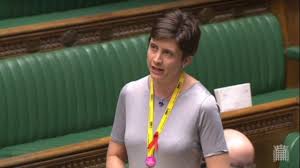
Image: Alison Thewliss MP.
Commenting, Alison Thewliss MP said:
“I hope that the Chancellor shares our concerns that the gaps in support is putting lives at risk and will agree that a compassionate approach is needed to support those affected.
"The UK government must listen to those of us who have been calling for welfare protections to be significantly strengthened to help people through this unprecedented emergency – including introducing a Guaranteed Minimum Income.
“Now more than ever, we are committed to cross-party collaboration on these issues, and we are asking the Chancellor to assess without delay how these issues can be addressed. Our proposals are there to help with that.”
ABC Comment, have your say below:

Jobless Americans See Benefits Rise
WASHINGTON (Reuters) - Americans who have lost their jobs due to the coronavirus outbreak will start getting enhanced jobless benefits as soon as this week as states deploy hundreds of billions of dollars in federal aid, state officials said on Tuesday.
Congress approved an additional $600 weekly payment for jobless workers as part of an unprecedented $2.3 trillion rescue package signed into law by President Donald Trump on March 27.
It could take several weeks for that money to filter through federal and state bureaucracies into the bank accounts of many of the millions of Americans who have been thrown out of work.
Still, qualifying New York residents will see the additional benefit payments this week, said Deanna Cohen, a spokeswoman for the state Department of Labor.
Missouri and Georgia also plan to start sending out payments starting the week of April 12, officials said, and Indiana will start the week after that.
Officials in Maine and California said they have not yet figured out when they will be able to distribute the money. Other states did not immediately respond to requests for comment.
Experts say some states may need several weeks to get the money out the door as they struggle to process a torrent of new unemployment claims.
“People are worried that some benefit goes out so people can pay rent on May 1. That may be a challenge,” said Michele Evermore, an analyst at the National Employment Law Project.
The enhanced jobless aid, which totals $260 billion, aims to ensure that those who are thrown out of work do not see a big drop in income. It adds $600 per week to the payments jobless workers typically receive, which are a fraction of their previous pay.
It also expands benefits to part-time workers and freelancers who previously did not qualify.
State unemployment systems are struggling to keep up with the deluge of applicants as businesses across the country shut their doors to minimize the spread of the pandemic, which has killed more than 11,000 people and infected more than 375,000 across the United States.
Initial weekly jobless claims spiked to more than 6 million last week, nearly 10 times the previous record set in 1982. Applicants say they have encountered downed websites and long waits.
States will have to reprogram their computer systems to provide the new benefit, which could be a daunting task.
More than half still rely on decades-old mainframe systems that run on outdated software.
In New Jersey, Governor Phil Murphy has asked for volunteers who can work with the COBOL language, first introduced in 1959, to reprogram the state’s computers.
Other states with newer systems have also been plagued by problems.
Florida Governor Ron DeSantis has scrambled to shore up a system set up in 2013 that has been unable to keep up with jobless applications, sparking widespread outrage. State officials have known for years about glitches that short-changed recipients but have failed to fix them, a review found last year.
Democrats in Congress say the Trump administration should do more to help. In a letter on Tuesday, 37 Senate Democrats called on the U.S. Department of Labor to provide technical support to states and quickly get them money to cover administrative costs.
ABC Comment, have your say below:




